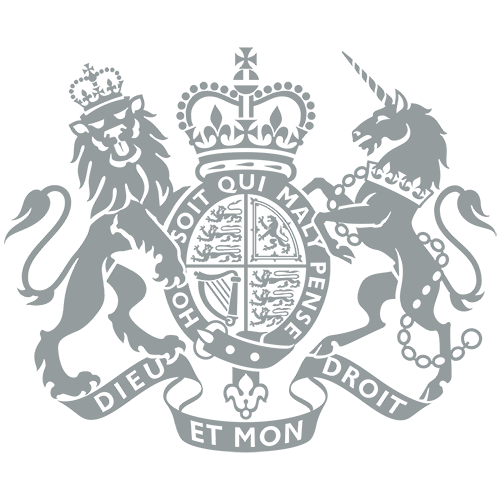Types of legislation (British Commonwealth)
The rule of law is key to the way the British Commonwealth operates on the way to establish a self-governing society based on creative ideology.
Any BC action and process is founded on the Commonwealth Framework to enable any citizen of the Commonwealth to participate in the creation of Commonwealth Law to achieve the will of the people as a whole and of each individual.
Commonwealth Law is made up of seven main groups of law.
The framework is known as basic law.
The peoples’ law, union law and common law are known as primary legislation.
Realm law and global law are known as secondary legislation.
Law in trust is made of both primary and secondary law.
The Framework
The British Commonwealth operates within the Commonwealth Framework (framework law) that establishes the Union State of the British Commonwealth as a direct congressional constitutional dominion and its mechanism of trust (law of trust) to create a framework of a new Commonwealth structure that can be used by any citizen of the British Commonwealth to decide, legislate and build their own future.
Any action and process of the British Commonwealth is founded on this framework, which is composed of a number of important integral acts that are the starting point for Commonwealth Law.
These integral acts set out the principles and process to establish a self-governing society based on creative ideology, evidences the will of the people, codifies the decision-making process and outlines the relationship between the Union State of the British Commonwealth and its people, jointly known as basic law.
Legislative versus non-legislative acts
Legislative acts are adopted following one of the legislative procedures set out in the Commonwealth Framework. Non-legislative acts do not follow these procedures and can be adopted by bodies of the Commonwealth according to specific rules.
Basic law provides for the British Commonwealth function of rule of law.
Primary legislation is passed by the Supreme Congress or the Commonwealth Courts.
Secondary legislation can only be created under powers given by basic law or primary law. This includes adaptation and determining date for when a legal act will come into effect as law.
Commonwealth Law with exception only to secondary legislation is considered the law of the land in the sense that it can be enforced by the union government.
Temporary legislation is not considered a legislative act.
The BC can pass laws only as authorised to do so via the Commonwealth Framework.
Law in trust (primary)
The Commonwealth Framework gives powers and authority to the union government to act in trust in the name of citizens of the British Commonwealth to create BC policy and BC decisions known as primary law in trust that in turn creates the framework that allows for the peoples’ law to be created.
These are the Commonwealth Resolutions, Trade Resolutions and Civil Service Resolutions as well as Commonwealth Directives.
The BC strategy (Directives) sets out the policies immediately executable by the Union State of the British Commonwealth on behalf of the people of the Commonwealth.
Commonwealth Resolutions set BC official policy and decisions.
The BC official policy are the acts, rules, regulations, and protocols that enact the creation of, establish and govern the bodies of the Union State of the British Commonwealth.
BC official decisions are the decisions that affect a subject or subjects of the British Commonwealth taken within the remit of powers of the Union State of the British Commonwealth. Can be reversed by an Act of the Supreme Congress.
The BC trade policy (Trade Resolutions) are the decisions that regulate any trade relationships to and between the bodies and subjects of the Commonwealth as a whole or in relation to particular entity.
These are set by the Chancellor of Trade and enforced by the trade bodies group.
The BC civil service policy (Civil Service Resolutions) are the decisions that govern and shape the activities of Union State of the British Commonwealth at a particular state level set by the local Commonwealth Embassies, Ministries and other bodies.
Peoples’ law
Peoples’ laws are primary legislation.
The Commonwealth Framework gives powers and authority to the people of the Commonwealth to decide and build their own future reflecting the direct democracy part of the Union State of British Commonwealth.
Peoples’ law (statute of people) are legal acts made by the people via the BC Supreme Congress.
Peoples’ law does not require any assent.
The types of legislative acts of peoples’ law are the Supreme Congress Recommendation, the Supreme Congress Directive and the Act of Supreme Congress.
A Recommendation is the legal route for any citizen of the Commonwealth to state any views on legislation for any official use.
A Directive is the legal route for any citizen of the Commonwealth to make legislation that may be supported by their peers to circumvent inability to pass such legislation nationally.
An Act is full-blown legislation made by the people on the Commonwealth level.
Union law
Union laws are primary legislation.
The Commonwealth Framework gives powers and authority to the elected or appointed representatives of the people, that are without any party affiliations, that are the Members, Lords and Senators of the Supreme Congress of British Commonwealth, to create laws at the Commonwealth level that are laws in each of the 60 member nations of the British Commonwealth, reflecting the representative democracy (congressional) part of the Union State of British Commonwealth.
Union law (statute of commonwealth) are legal acts made by the BC Supreme Congress.
Union law requires Royal Assent.
The single legislative act of Union law is the Act of Commonwealth.
Bills of Proposal and the pre-assent form of an Act of Law are known as temporary legislation.
Law in trust (secondary)
Secondary law in trust enables the work and oversight of the union government.
An opinion of the Lords of Commonwealth is an independent counterbalancing legislative mechanism of oversight available to the public.
A Commonwealth Statutory Instrument is used by the union government to provide practical measures that enable basic and primary law to be enforced and operated in daily life.
Global law
Global law (statute of Global Britain) is ceremonially and nominally made law in the British Commonwealth, but the work to create such law (core text) is integrated from work made in the United Kingdom within the remit of the Global Britain Framework.
The Commonwealth Framework provides for Global law to serve as guidance when making Union law providing a different practical perspective useful to law makers due to the Global Britain Framework arising from deep cooperation and partnership state of affairs.
Global law requires Dominion Assent.
Realm law
Realm law is law created by a member nation that is also a Commonwealth State.
Currently this refers only to the Regulatory and Legislatory Framework of British Ukraine (RALFOBU) of the Commonwealth of British Ukraine (as of May 2022).
Common law
Common laws are primary legislation made by the Commonwealth judiciary.
The state of the British Commonwealth is constructed in such a way to protect and strengthen the sovereignty and voice of the people of each individual member nation and as such with exception only to union law and basic law allows any other item of Commonwealth Law to be subject to judicial review and interpretation by the Commonwealth judiciary.
Types of Commonwealth legal acts
Act of Commonwealth
An Act of Commonwealth is a legal act that applies automatically and uniformly to all BC countries as soon as it enters into force, without needing to be transposed into national law. It is binding in its entirety on all BC member nations.
Act of Supreme Congress
An Act of Supreme Congress is a legal act that applies automatically and uniformly to all BC countries as soon as it enters into force, without needing to be transposed into national law. It is binding in its entirety on all BC member nations.
Act of Template Law
An Act of Template Law is a legal act that applies automatically and uniformly globally as soon as it enters into force under the sovereignty of the United Kingdom. It is considered binding in its entirety to any peoples’ that recognise British sovereignty to creation of Global Britain, and effect of such on those peoples’ which may choose to transpose it into national law within their view of the value of the act.
Commonwealth Resolution
A Commonwealth Resolution establishes official policy of a binding legislative act in its entirety for all bodies or a specific body of the British Commonwealth, or an official binding legislative decision in its entirety on a subject or subjects of the British Commonwealth, specifying those to whom it is addressed and shall be binding only on them.
Supreme Congress Directive
A Supreme Congress Directive is a binding legislative act on a single BC country that needs to be incorporated into national law (transposed) within a year. The member nation is free to choose how to incorporate the Directive on the basis that the objective of the Directive is met, and this must be confirmed by the Commonwealth Commission upon its review.
Commonwealth Directive
A Commonwealth Directive is a non-binding legislative act of strategy for all bodies of the British Commonwealth and sets out the policies immediately executable by the Commonwealth Trustees’ on behalf of the people of the Commonwealth.
Trade Resolutions
A Trade Resolution establishes trade policy of a binding legislative decision in its entirety on a participant or participants of trade activities in the Commonwealth, specifying those to whom it is addressed and shall be binding only on them.
Civil Service Resolution
A Civil Service Resolution establishes civil service policy of an official binding legislative decision in its entirety, either for all bodies or a specific body of the Union State of the British Commonwealth at a particular state level, or on a subject or subjects of the British Commonwealth at that particular state level, specifying those to whom it is addressed and shall be binding only on them at the state level of issue.
Commonwealth Lords Opinion
An opinion of the Lords of Commonwealth is an instrument that allows to make an honest statement on the propriety, justness and equity of legislation, government decisions and actions of individuals without imposing any legal obligation on the subject of the opinion. An opinion has no binding force beyond the Union State of British Commonwealth.
Supreme Congress Recommendation
A Supreme Congress Recommendation is a non-binding legislative act that forms the legal route for a citizen of the Commonwealth to make his or her views and desires for legislation known and to suggest a line of action without imposing any legal obligation on those to whom it is addressed. They have no binding force.
Commonwealth Statutory Instruments
Commonwealth Statutory Instruments (CSIs) are documents drafted by the union government to adapt Commonwealth Law that are either rules, orders or a regulation. These are published with an explanatory memorandum, which outlines the purpose of the CSI and why the adaptation is necessary.



